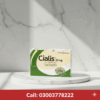
Best Souq UAE: Your Guide to Investing Smartly
Dubai is a city that perfectly balances tradition and modernity. While towering skyscrapers, luxury malls, and tech startups dominate headlines, the soul of Dubai still resides in its historic marketplaces—the souqs. These bustling, vibrant hubs have been the cornerstone of trade and commerce in the region for centuries. For investors and entrepreneurs seeking an authentic and potentially lucrative venture, exploring the best Dubai souq options can be a smart move.
Whether you’re interested in setting up a business, buying an existing one, or simply understanding the investment potential, this guide provides a comprehensive roadmap. We’ll dive into the economic dynamics of souqs, highlight key areas for investment, and explain how platforms like thesouqfinder are transforming the way investors engage with the traditional market sector.
The Economic Significance of Dubai Souqs
Souqs have historically been the heartbeat of Middle Eastern commerce. In Dubai, they remain central to the city’s economic and cultural fabric. These traditional marketplaces offer a diverse range of goods—from spices and textiles to gold and electronics. The footfall is impressive, driven by both locals and the influx of tourists eager to experience authentic Arabian trading culture.
The economic value of Dubai’s souqs cannot be overstated:
- Tourist Magnet: Millions of tourists visit Dubai souqs annually, providing consistent revenue streams for vendors.
- Diverse Products: From local handmade items to imported luxury goods, souqs offer a variety that appeals to wide demographics.
- Low Entry Barriers: Compared to setting up in modern malls or business centers, entry into a souq is often more affordable.
- Strong Community Ties: Many souq vendors have loyal customer bases built over generations, offering stability and repeat business.
With the city’s continued investment in tourism and cultural preservation, the long-term outlook for Dubai’s souqs is promising.
What Makes a Souq Profitable?
Not all souqs are created equal. Certain locations and product categories tend to perform better depending on foot traffic, tourist appeal, and proximity to key landmarks. Here’s what to look for when considering investing in a souq business:
1. Location and Visibility
Souqs located in or near popular tourist spots such as Deira, Al Fahidi, or Dubai Creek tend to attract higher footfall. A stall or shop in such areas can generate significant daily revenue compared to lesser-known markets.
2. Product Demand
Products like gold, spices, perfumes, textiles, and traditional handicrafts are particularly popular among tourists. Businesses offering these items often outperform others due to their universal appeal.
3. Shop Condition and Presentation
In today’s competitive environment, presentation matters—even in traditional markets. A clean, well-maintained, and aesthetically pleasing shop attracts more customers and builds trust.
4. Customer Service and Authenticity
Offering genuine products and practicing transparent pricing can go a long way in building brand reputation and generating repeat customers. Some of the best souq businesses thrive purely on word-of-mouth and online reviews.
Spotlight on Key Dubai Souqs for Investment
Dubai’s marketplace ecosystem includes several renowned souqs, each with unique attributes and investment potential.
1. Gold Souq
Located in Deira, the Gold Souq is one of Dubai’s most iconic trading spots. Known for its vast selection of gold jewelry, this market draws thousands of visitors daily. Investment in a gold shop requires significant capital but can offer substantial returns due to high product value and demand.
2. Spice Souq
Adjacent to the Gold Souq, the Spice Souq offers exotic spices, herbs, teas, and natural products. A shop here can be started with relatively lower investment and can become profitable through high-volume, lower-margin sales.
3. Textile Souq
Located in Bur Dubai, this market specializes in fabrics, garments, and tailoring services. Investors can capitalize on growing demand for traditional attire, costume rentals, and personalized clothing.
4. Perfume Souq
Also situated in Deira, the Perfume Souq is a hotspot for oud, attars, and custom-blended fragrances. Margins in this sector can be high due to the value-added element of bespoke products.
How the Souq UAE is Evolving
The Souq UAE is not just a collection of physical marketplaces—it represents a broader shift toward digital integration and smart trading practices. Many traditional businesses are adopting e-commerce and digital payment systems to attract modern customers and improve operations.
The government has also been proactive in modernizing these historic hubs while preserving their cultural significance. Infrastructure upgrades, increased marketing for tourism, and improved regulatory support have all contributed to revitalizing souq activity.
For investors, this evolution offers the best of both worlds: heritage charm and future-ready potential.
Smart Ways to Invest in a Dubai Souq
1. Buy an Existing Business
Purchasing an established shop in a souq can save time and provide immediate cash flow. However, due diligence is critical—review financial statements, check customer footfall, and verify business licenses.
2. Start from Scratch
Opening a new shop allows greater flexibility in branding and operations. This route requires market research, supplier networking, and a solid marketing plan.
3. Partner with Local Traders
Forming joint ventures with experienced local vendors can ease the learning curve and provide access to trusted supply chains.
4. Use Specialized Platforms
Services like thesouqfinder streamline the entire process by listing vetted businesses for sale in Dubai souqs. These platforms offer transparency, reduce risk, and connect you with legitimate sellers.
Why Use thesouqfinder?
Navigating the Dubai souq scene can be challenging, especially for new investors. That’s where thesouqfinder comes in. Here’s why it stands out:
- Verified Listings: Ensures you’re looking at legitimate business opportunities.
- Local Expertise: Provides cultural and commercial insights specific to the UAE market.
- Negotiation Support: Assists in price negotiations and contract finalization.
- Ease of Use: A well-organized online platform to explore and compare opportunities.
Whether you’re looking for a stall in the Souq UAE or an entire business unit in Deira, this platform can be an invaluable tool in making an informed decision.
Potential Risks and How to Mitigate Them
As with any investment, buying or starting a business in a Dubai souq comes with risks:
- Market Saturation: Some product categories may have too many competitors. Focus on niche offerings or superior quality.
- Regulatory Challenges: Always consult legal experts to ensure compliance with UAE trade laws.
- Cultural Barriers: Understanding local etiquette and business practices is crucial. Hiring local staff can bridge the gap.
- Economic Volatility: Currency fluctuations or shifts in tourist patterns can impact sales. Diversifying offerings helps maintain stability.
Mitigating these risks involves thorough research, clear contracts, and possibly hiring a local consultant to guide your journey.
Cultural and Social Impact
Beyond economics, investing in a souq business has cultural significance. These markets are repositories of history and tradition. By contributing to their sustenance, you’re also helping preserve Dubai’s rich heritage. This dual benefit—profit and purpose—makes souq investment uniquely rewarding.
Conclusion
The best Dubai souq opportunities blend cultural authenticity with real economic potential. With the backing of government support, evolving digital tools, and strong tourism-driven demand, Dubai’s traditional markets are more relevant than ever for modern investors.












